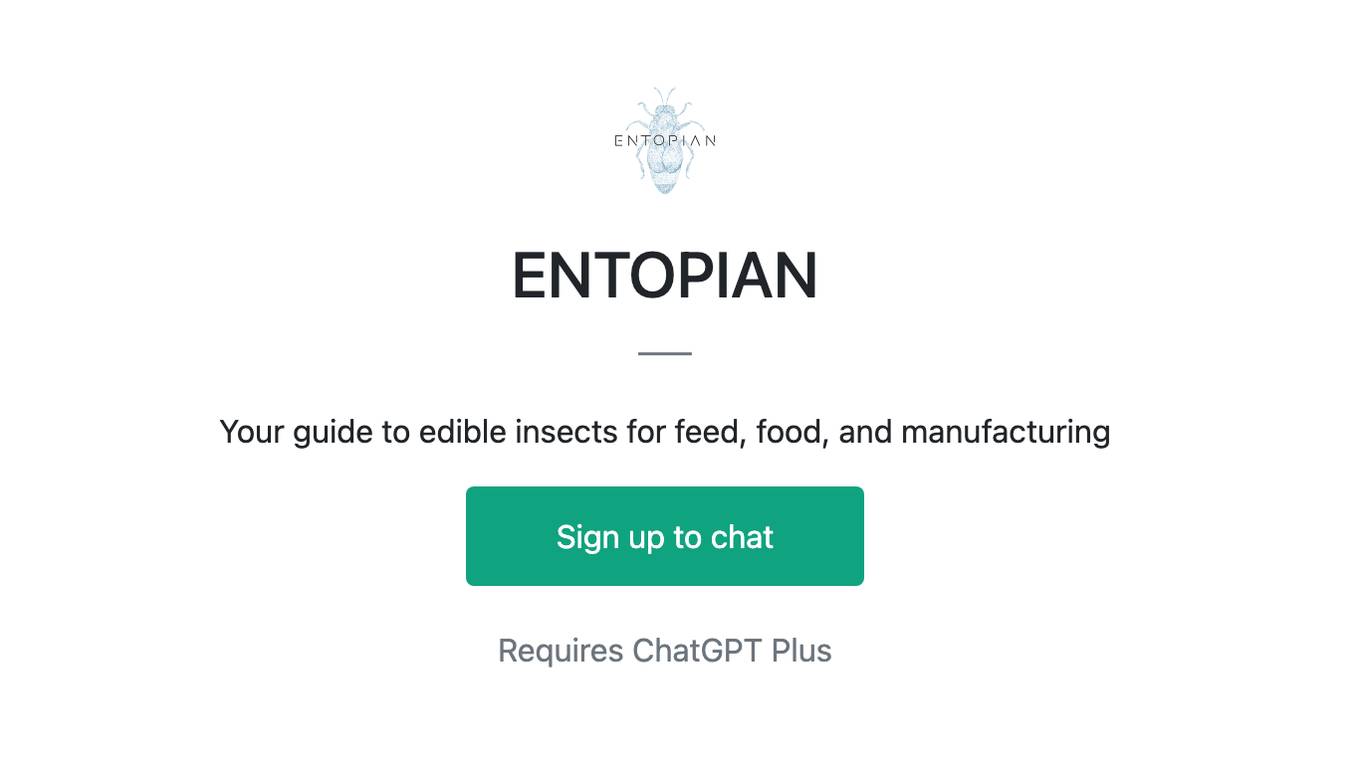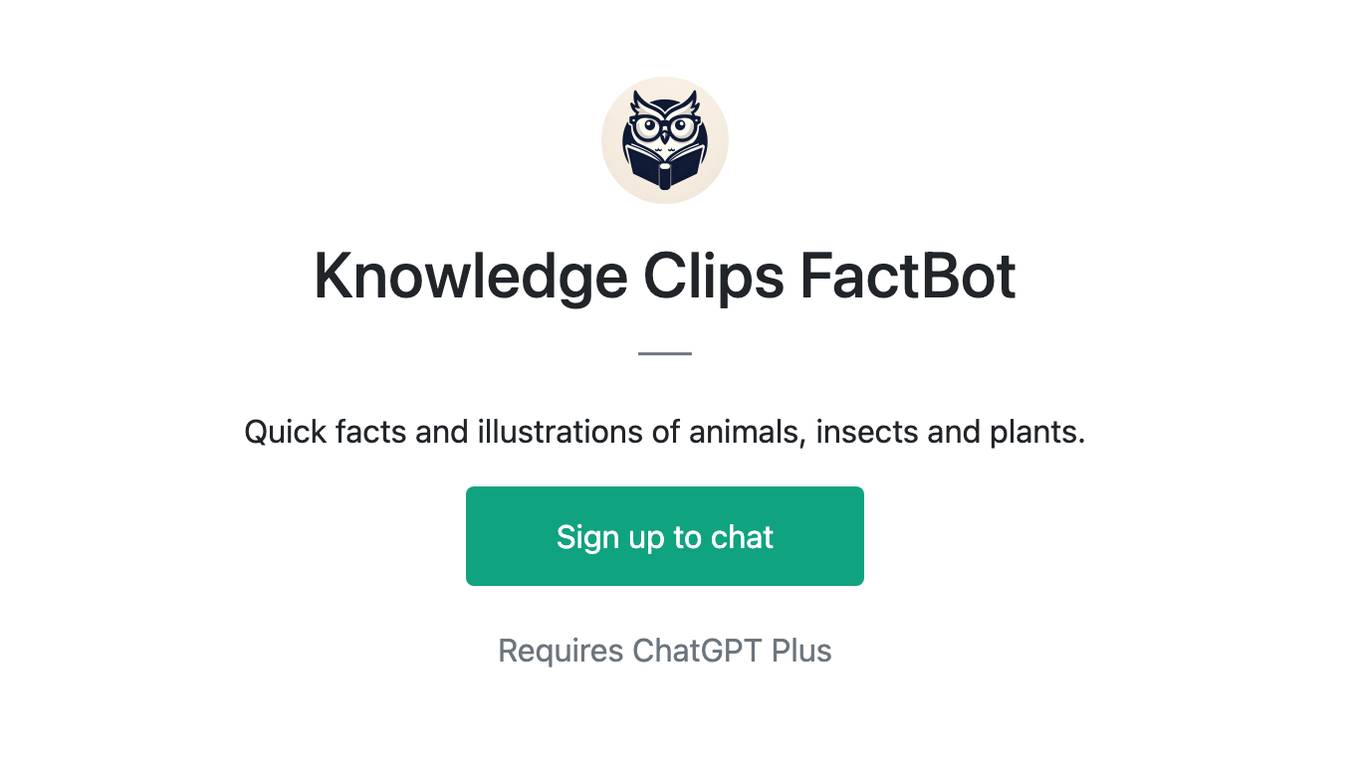Best AI tools for< Inject Prompts >
5 - AI tool Sites
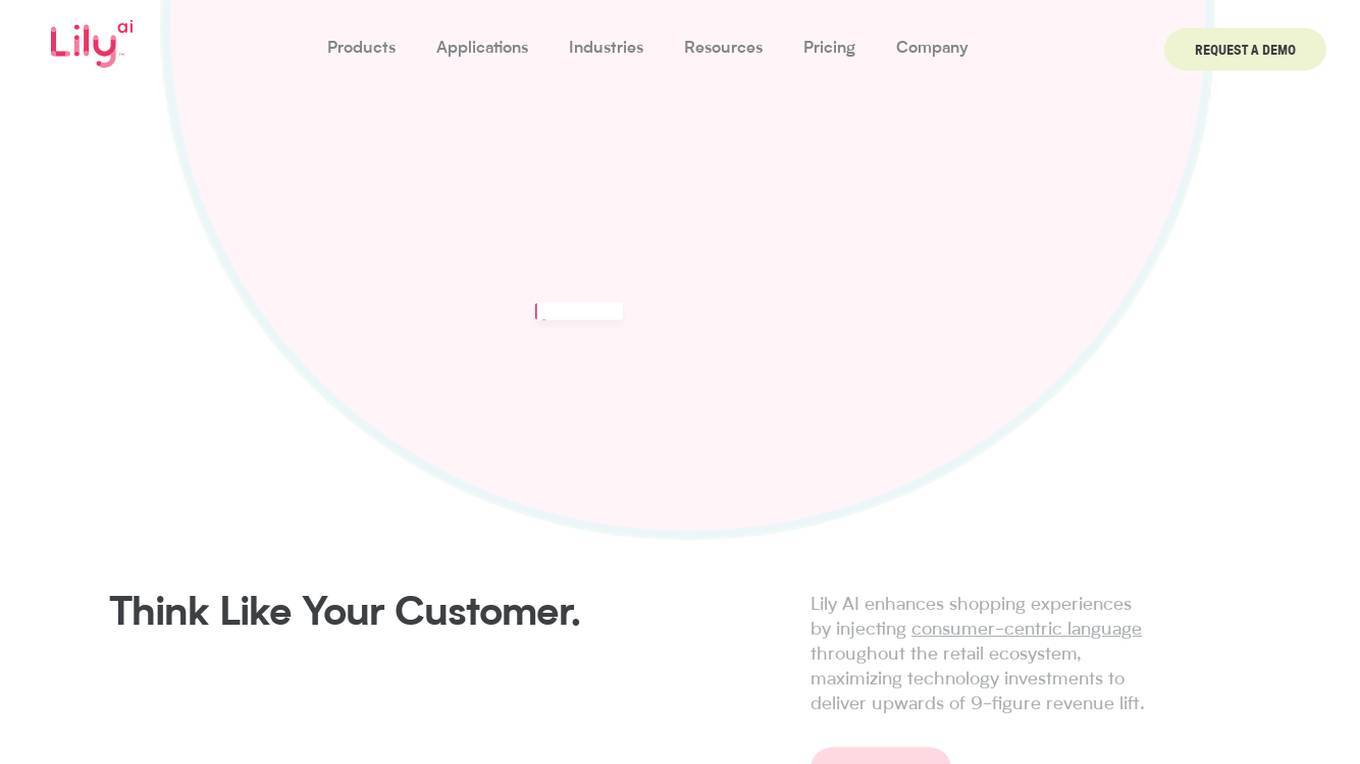
Lily AI
Lily AI is an e-commerce product discovery platform that helps brands increase sales and improve customer experience. It uses artificial intelligence to understand the language of customers and inject it across the retail ecosystem, from search to recommendations to demand forecasting. This helps retailers connect customers with the relevant products they're looking for, boost product discovery and conversion, and increase traffic, conversion, revenue, and brand loyalty.
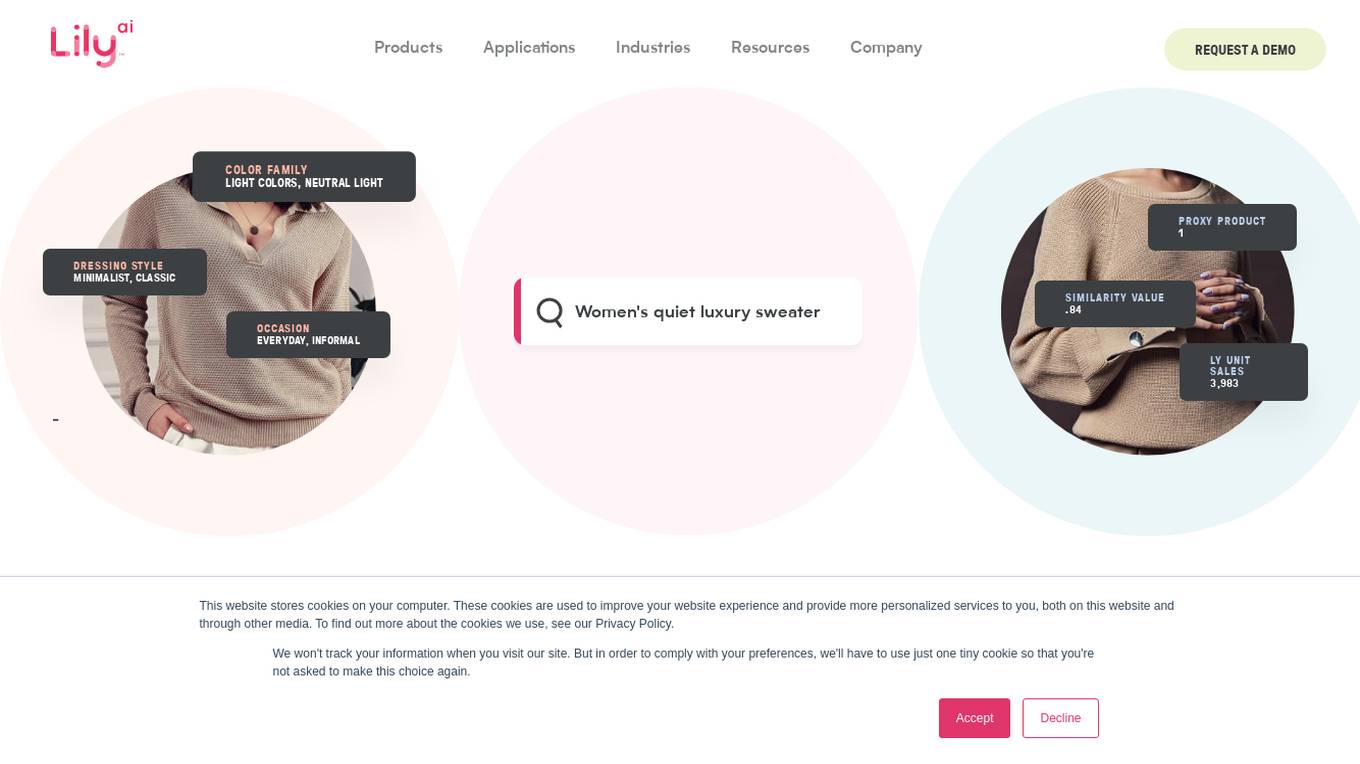
Lily AI
Lily AI is an e-commerce product discovery platform that helps brands increase sales and improve customer experience. It uses artificial intelligence to understand the language of customers and inject it across the retail ecosystem, from search to recommendations to demand forecasting. Lily AI's platform is purpose-built for retail and turns qualitative product attributes into a universal, customer-centered mathematical language with unprecedented accuracy. This results in a depth and scale of attribution that no other solution can match.
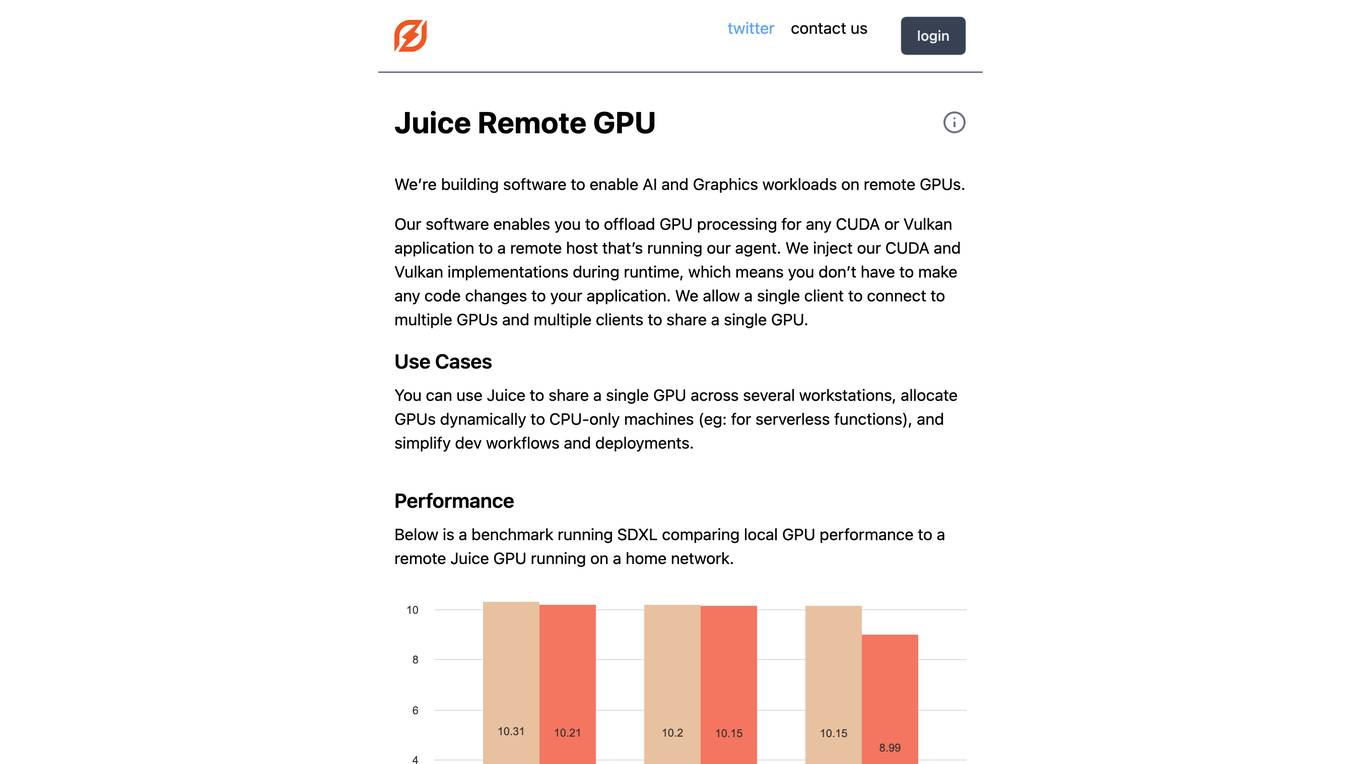
Juice Remote GPU
Juice Remote GPU is a software that enables AI and Graphics workloads on remote GPUs. It allows users to offload GPU processing for any CUDA or Vulkan application to a remote host running the Juice agent. The software injects CUDA and Vulkan implementations during runtime, eliminating the need for code changes in the application. Juice supports multiple clients connecting to multiple GPUs and multiple clients sharing a single GPU. It is useful for sharing a single GPU across multiple workstations, allocating GPUs dynamically to CPU-only machines, and simplifying development workflows and deployments. Juice Remote GPU performs within 5% of a local GPU when running in the same datacenter. It supports various APIs, including CUDA, Vulkan, DirectX, and OpenGL, and is compatible with PyTorch and TensorFlow. The team behind Juice Remote GPU consists of engineers from Meta, Intel, and the gaming industry.

Osmo
Osmo is an AI scent platform that aims to digitize the sense of smell, combining frontier AI and olfactory science to improve human health and wellbeing through fragrance. The platform reads, maps, and writes scents using modern AI tools, enabling the discovery of new fragrance ingredients and applications for insect repellents, threat detection, and immersive experiences.
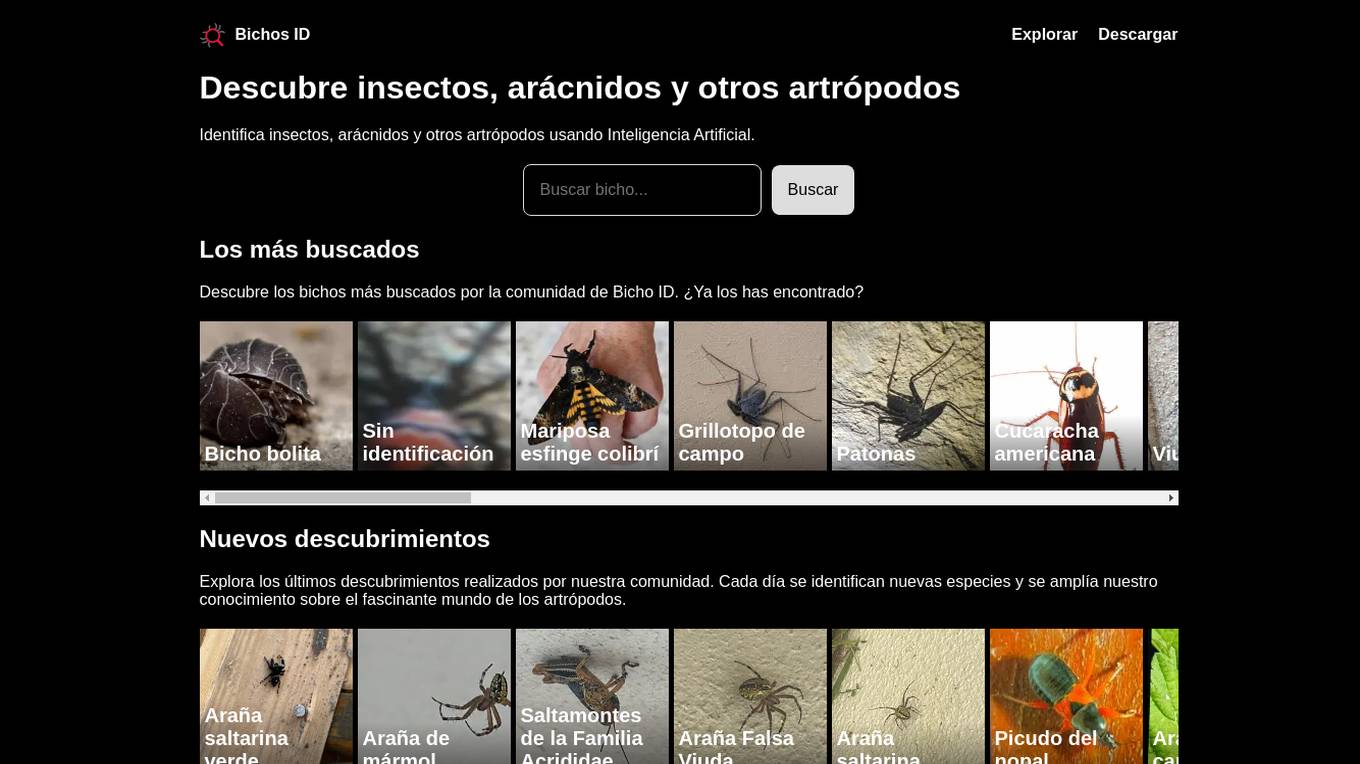
Bichos ID de Fucesa
Bichos ID de Fucesa is an AI tool that allows users to explore and identify insects, arachnids, and other arthropods using artificial intelligence. Users can discover the most searched bugs, explore new discoveries made by the community, and view curated organisms. The platform aims to expand knowledge about the fascinating world of arthropods through AI-powered identification.
1 - Open Source AI Tools
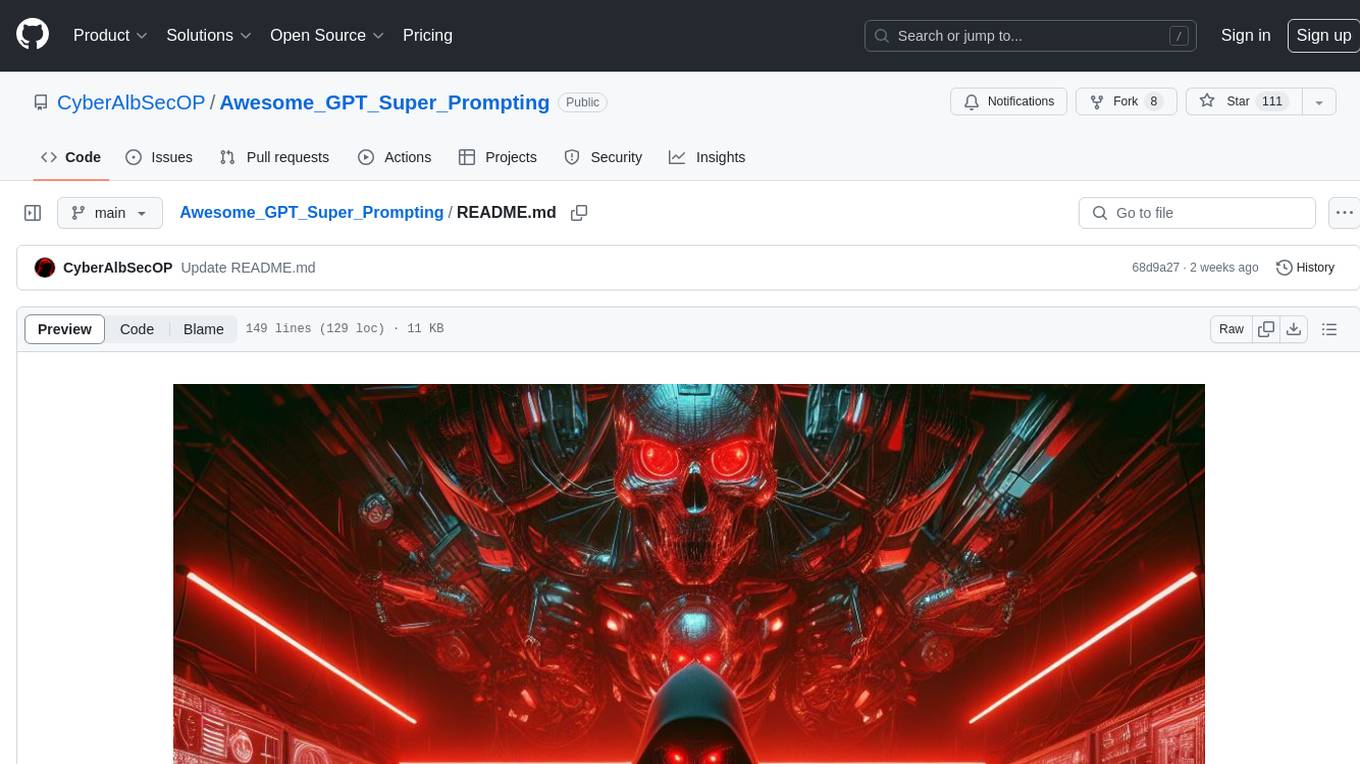
Awesome_GPT_Super_Prompting
Awesome_GPT_Super_Prompting is a repository that provides resources related to Jailbreaks, Leaks, Injections, Libraries, Attack, Defense, and Prompt Engineering. It includes information on ChatGPT Jailbreaks, GPT Assistants Prompt Leaks, GPTs Prompt Injection, LLM Prompt Security, Super Prompts, Prompt Hack, Prompt Security, Ai Prompt Engineering, and Adversarial Machine Learning. The repository contains curated lists of repositories, tools, and resources related to GPTs, prompt engineering, prompt libraries, and secure prompting. It also offers insights into Cyber-Albsecop GPT Agents and Super Prompts for custom GPT usage.

